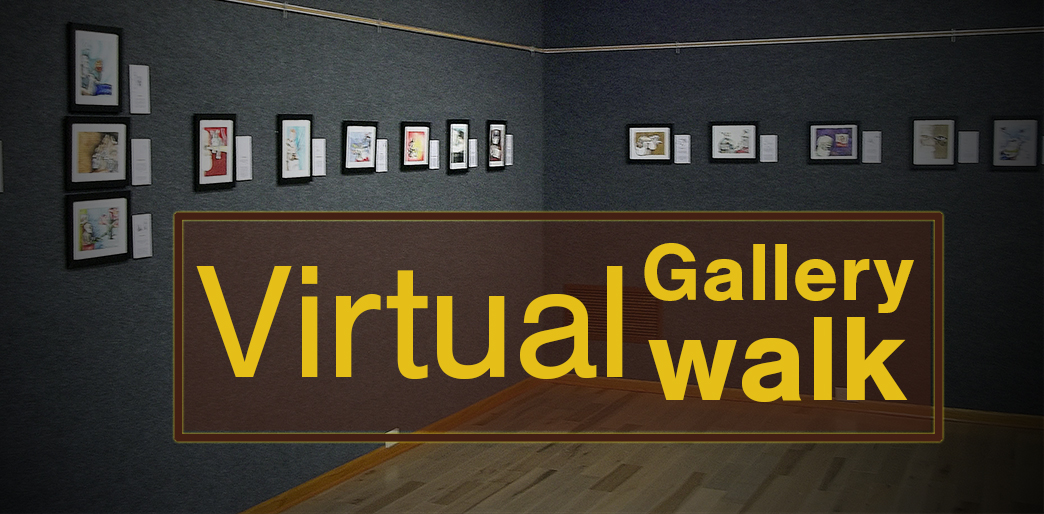
End of Life: A Collaboration
My Uncle Tony became sick and it was terrible. I moved to Wisconsin in October of 2017 to help. My Aunt Peggy, until then his sole caregiver and also a recent survivor of cancer, was wound so tight holding everything together that her creative drive had vanished. She was Peggy called it the “Incredible Shrinking Brain” but the Doctors called it PCA Dementia. As the disease progressed, he suffered greatly. During this time, he lost muscle and mental control, dealt with delusions, anxiety, depression, pain, and ennui. To him we faded in and out as healers, demons, angels, or monsters.
We couldn’t fight it. All we could do was to try to make him comfortable as he slowly lost context with this reality. For us, he was always present but always lost.
As I spent time with my Uncle, I made drawings of him out of an earnest need for expression and emotional release, a process which sparked Peggy’s interest. This led to a formal project in which my loose illustrations were passed to Peggy for her response using pen and watermedia. As Tony’s depth of visual understanding shrank, the irony was that Peggy’s and mine grew. It is through art that we became survivors of this family crisis.
Working together in artistic collaboration, Peggy and I elevated each other’s creative evolution. While I helped her to prepare for the decline and death of her husband, she, in turn, helped me gain control and discipline over my illustrations. My drawings were clean, loose, formal, and expressive depending on my interactions with Tony, my mental health, and my distractibility. Sometimes the drawings were a release valve that helped me vent frustrations or fears and sometimes they lifted me up into a more intellectual headspace. I finished my work soon after Tony died.
Peggy’s work continued as an ongoing expression of grief. For her, there is no room for emotional barriers, no distance between her and the subject. These efforts produce art that is more real than her realism. Her catharsis requires an honest and raw approach. Tony was our silent collaborator, yet it is about more than Tony. It was an honor and privilege to care for him and I hope this project can raise awareness of caregivers and all they do. I know that he would be proud of this body of work. But, wouldn’t it be nice if I just got to draw a tree instead and that he was still here to appreciate it?
Bradley Flora (with Peggy Flora Zalucha) 2.11.19
RIP L. Anthony Zalucha, PhD. 4.21.48 – 5.9.18
60+ works on paper approximately 5” x 7”

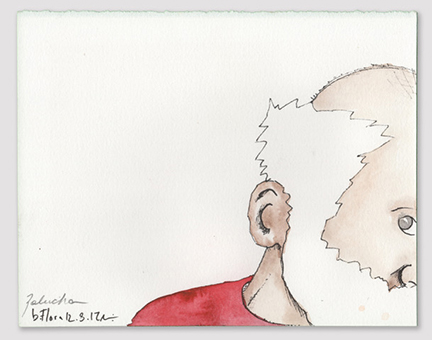
Tony
“Tony was born in 1948 and died seventy years and two weeks later. I have lots of wonderful memories but I prefer to remember him like this: Introverted, curious, studious, charming, witty, clever, sharp, loving and more. There will never be anyone else quite like him. ” ~Peggy
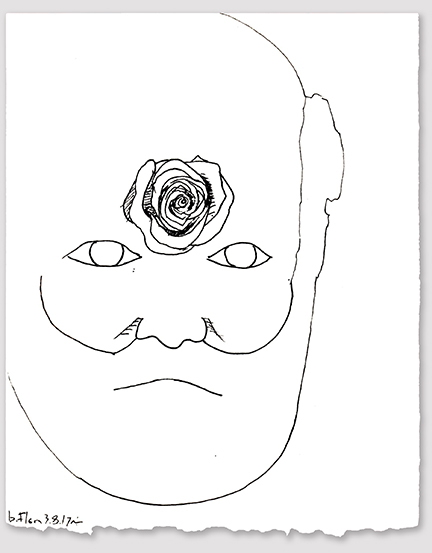
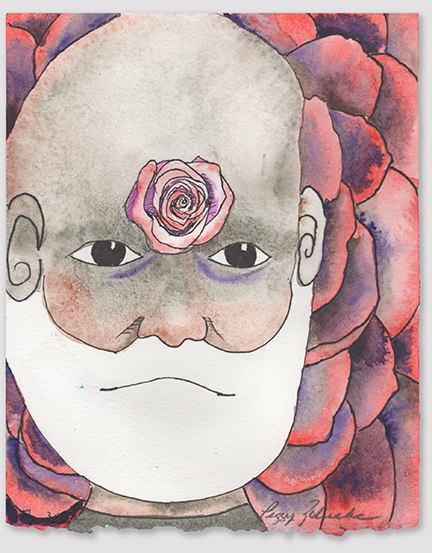
Peony Man
One of Tony’s passions was growing and nurturing exotic peonies. He started because he loved the varieties and colors. Eventually, he had over 60 plants and always invited the Garden Club over to enjoy. We had to move in order to have a handicap accessible house. I had the peonies moved along with us so that Tony could feel that all of his passions did not need to be abandoned. Now I nurture the peonies… with pleasure.
~Peggy
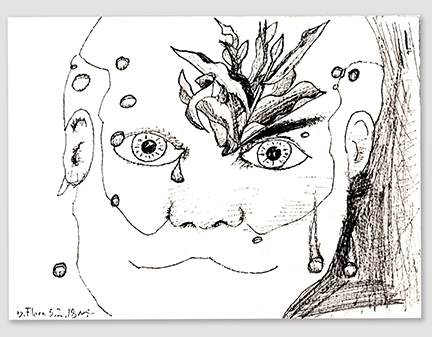
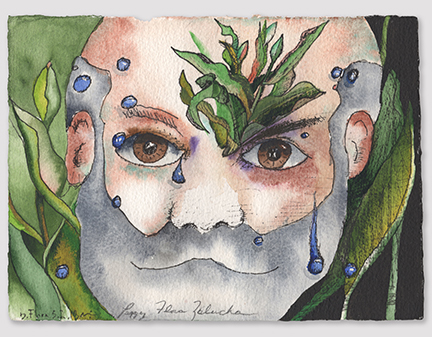
The PALEOETHNOBOTONIST, Ph. D
“For a day or two Tony thought I was a Japanese soldier from an island in the Pacific. This idea got lodged in his brain on ”loop” while listening to a memoir by a WW2 Marine on audio tape. I drew raindrops on my car windshield after grocery shopping in a labored procrastination to avoid a so-called return to the trenches. The serene Tony drawn later was done as a direct meditation on all this, while the plant was drawn first at Olbrich Conservatory” ~ Bradley
Tony had a major in Archaeology and a minor in Botany. He combined them to become the foremost scientist and “go-to” guy in the Upper Midwest. ~ Peggy
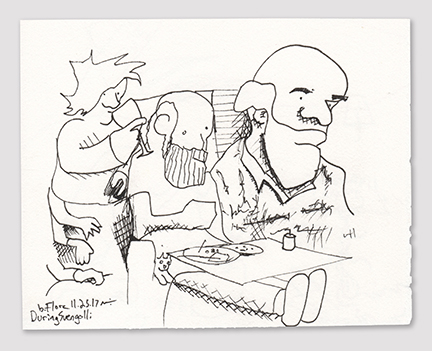
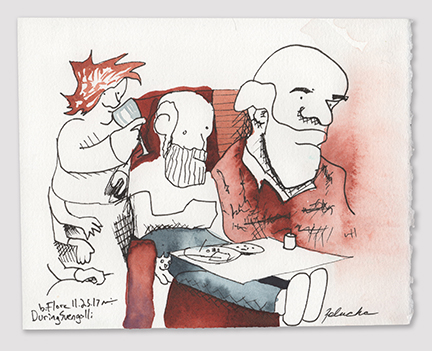
Point of View
“I am always trying to push past distraction, drawing with the TV on over my shoulder. Peggy helping Tony eat and both of them watching a movie about monsters.” ~Bradley
“Although I don’t think Bradley intended for this to be anything more than practice, I like it because it catches us in real life: food, wine, cat and comfy chair. ” ~ Peggy
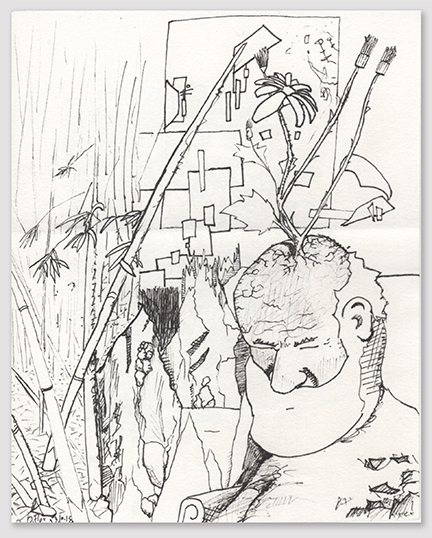
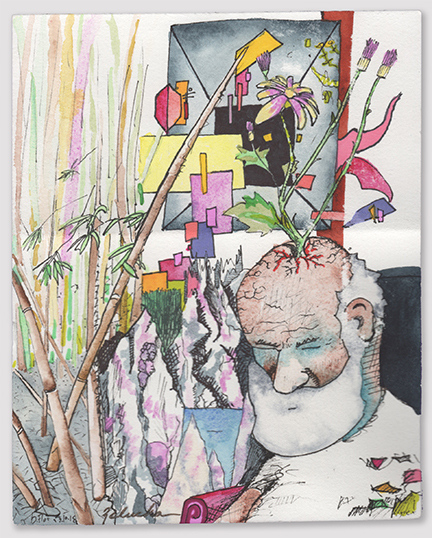
Brain Garden
Tony’s complex brain was filled with facts, figures and images that had been nurtured like a garden. He used to be able to access details like a mainframe computer. It was painful for him to remember what he used to be able to do in comparison to what he couldn’t do now. He told me once that the worst part was having me see this aspect of him.
~Peggy
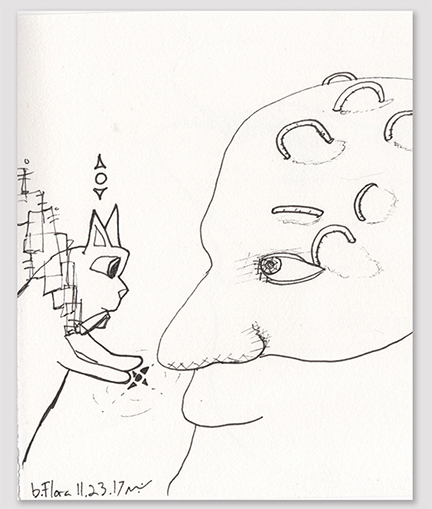
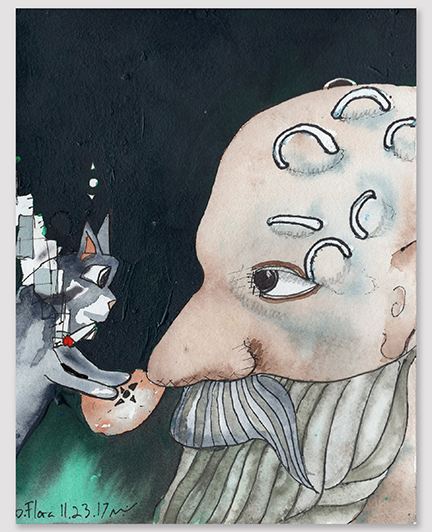
Cat Conversation
“He liked chocolate chip cookies and took pride that he didn’t need much help eating them until near the end. Eating a chocolate chip cookie was one of the few motions his body could do with relative ease so it became a kind of refuge. A place where, for just a moment, Tony could retain a semblance of control, sovereignty and dignity.” ~ Bradley
“Spot, the cat, hung out with Tony. I imagine them enjoying everything together, including chocolate chip cookies and maybe a little toke.” ~ Peggy
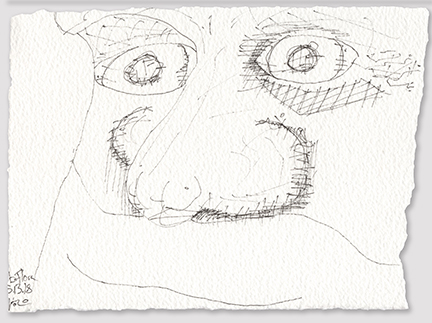
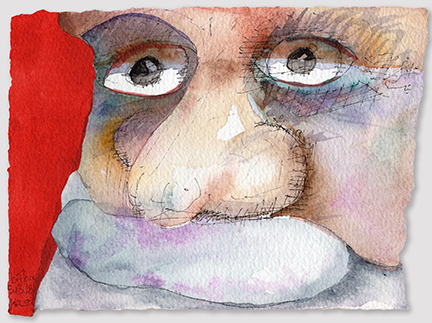
It was a Colorful Life
“Tony was a lucky man. He got to do things and see places that most people never do. He knew and loved music, he was a fine vocalist, a relentless student and a modest expert in many fields. We complemented each other: me as artist and Tony as scientist. When together we joked that I was always looking up at the sky, the light and the patterns… while he was always looking down at the earth looking for anything interesting to an archaeologist. Funny thing… He was always finding money and I never did!
~Peggy
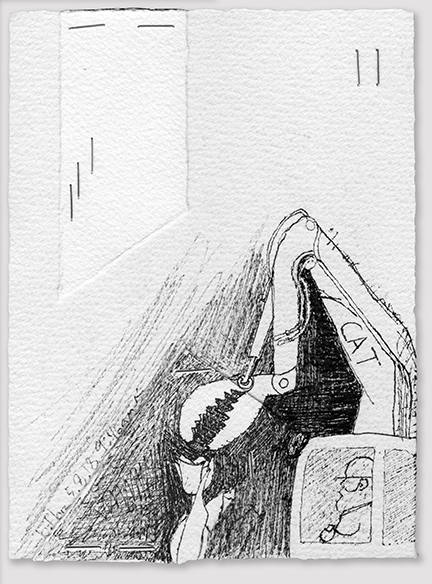
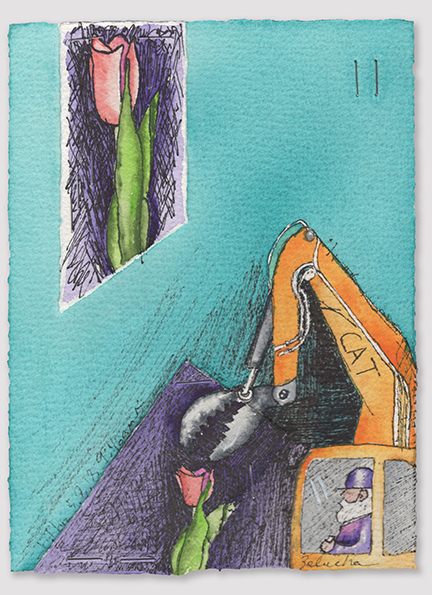
Overkill
As Tony’s illness developed, it took more and more effort to do even the most mundane things. We had to discuss what we were going to do and how we were going to do it… and then we would do our best to accomplish the task. If he had wanted to pick a flower, I imagine that it would seem to him that earthmoving equipment would be the best solution.
~Peggy
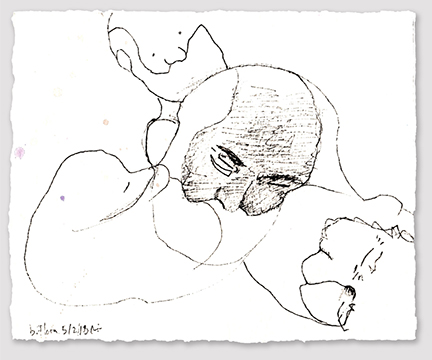
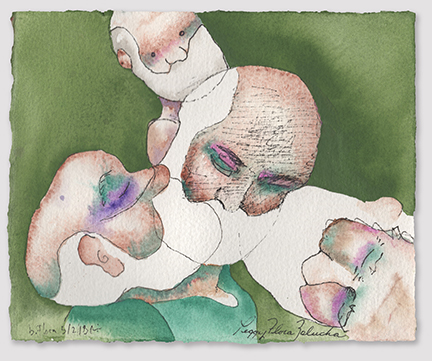
A Day in the Life
The long days were pretty boring. Bradley did a good job of adding comic relief and the cat brought playfulness and companionship. We watched movies and TV, listened to books on tape and classical music. Overall, naps were his refuge from the reality of the situation.
~Peggy
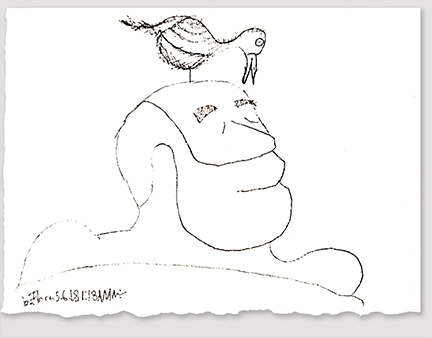
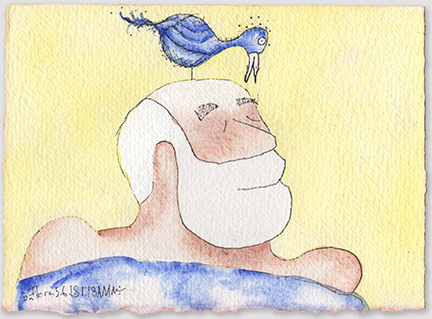
A Visit from the BlueBird of Happiness
“Tony was very musical. He considered music as his major in college but chose archaeology instead. Although he had been the lead in many high school musicals, he didn’t sing much around me. He did, however, whistle. Believe it or not, he was great at it. No matter where he was, if he was whistling, I knew he was content.”
~Peggy
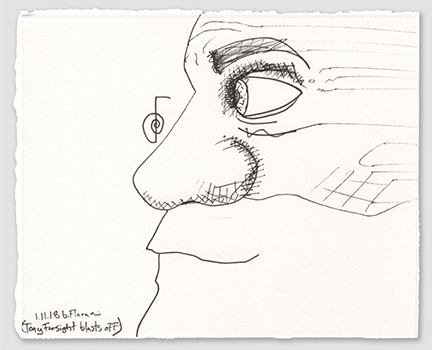
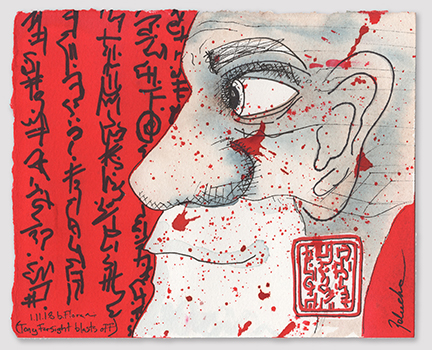
Another Language
“Tony spoke several languages. He spent three summers in China teaching English as a Second Language. The last years of his life, he aquired yet another language. It was a messy, frustrating, incomplete aphasia. Only he knew what was trying to say.
~Peggy
